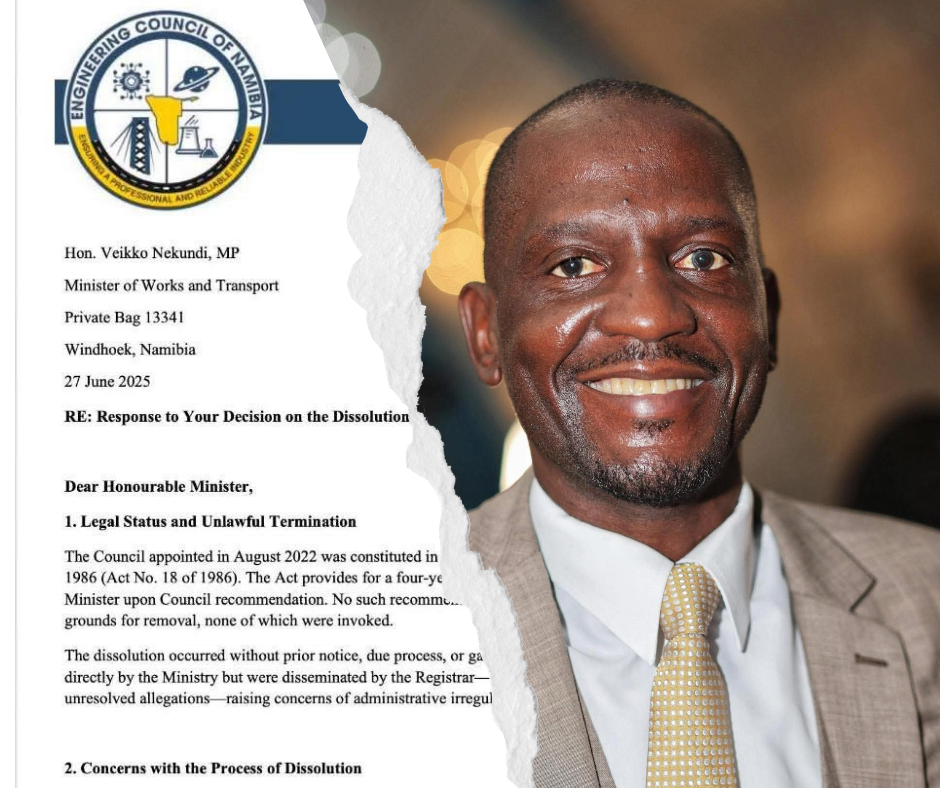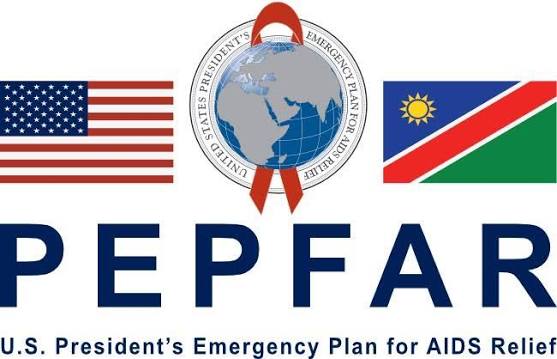
The Engineering Council of Namibia (ECN) has formally responded to the Ministry of Works and Transport’s recent decision for dismissing several members of Engineering Council of Namibia, describing the move as both legally unfounded and procedurally irregular.
In a letter addressed to Hon. Veikko Nekundi, MP and Minister of Works and Transport, the ECN expressed serious concern over the abrupt termination of its members without due process. The response outlines what it claims to be multiple violations of the Engineering Profession Act of 1986 (Act No. 18 of 1986), including a lack of formal recommendation, failure to follow legal termination procedures, and the absence of gazettal.
According to the ECN, the Council that was appointed in August 2022 was legally constituted in terms of the said Act, which grants council members a four-year term unless shortened or extended by the Minister but only upon a formal recommendation by the Council. “No such recommendation was issued,” the Council stated, adding that the Act only allows removal on limited legal grounds, none of which were cited in the dissolution.
The Council further argues that its termination occurred without any prior notice or adherence to lawful administrative processes. The letter of dissolution was reportedly not issued directly by the Ministry itself, but rather communicated via the Registrar. The Council highlighted that the Registrar is currently facing multiple allegations of misconduct, raising further doubts about the legitimacy and neutrality of the dissolution process.
The ECN also criticized the Ministry for the way in which the decision was communicated to the public. The Ministry allegedly used the Registrar—who stands accused of misconduct—to disseminate the termination letter and permitted the communication to be shared on social media. The ECN claims this act not only compromised the integrity of professional government communications but also caused public embarrassment to the Council.
“This was not only procedurally flawed but humiliating to the Council. It undermines both the rule of law and the principle of professional communication within government,” the Council stated. “This precedent is unprecedented in Namibia’s governance history and deeply troubling. It sets dangerous precedent for all statutory bodies.”
The letter implies that the Council may seek further recourse to challenge the decision and restore what it sees as an unjustified breach of its mandate.
As of now, the Ministry of Works and Transport has yet to publicly respond to the ECN’s claims. The unfolding matter is likely to attract attention not only from the engineering fraternity but also from legal and governance watchdogs concerned with the integrity and accountability of public administration in Namibia.


























